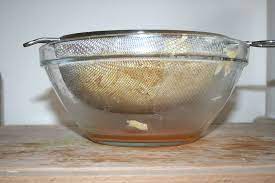
Introduction:
When you think about being tired and needing more energy, does coffee or energy drinks pop up in your mind? Well it is not surprising, since this is where most people’s thoughts go. But believe it or not, there are many ways to boost your energy levels more naturally without even consuming caffeine.
Some of the methods to boost your energy:
Try to Get More Sleep:
The better you sleep you get, the more energy in the morning. If you have a habit of getting poor sleep that is constantly interrupted, then you will have low energy during the day. Start a night time routine that gets you restful for sleep, go to bed at a decent hour, and try to remove distractions like turning off your phone and keeping the TV off.
Take Your Vitamins:
You also want to be sure you are eating a well balanced diet that allows you to get all the important nutrients you need for proper energy. If you don’t have enough vitamin D in your diet and don’t get regular access to sunlight, your vitamin D could be low, leading to deficiencies. You also need other nutrients, including protein and carbohydrtates for energy.
Chia Seeds help:
Chia seeds are an excellent source of energy-producing nutrients, including healthy fats, fibre, and protein. They are really easy to use in drinks, meals, and snacks. You can also use chia seeds in a number of ways such as chia seed pudding, or milk shakes. You can also add any flavours you may fancy.
Get Regular Exercise:
Exercise is going to help your energy levels in a number of different ways. First, it helps to boost your mood and give you an instant burst of energy once your workout is over. Exercising in the morning can be really beneficial. Exercising more often also makes it to where you are more rested at night, helping you to get more sleep.
Reduce Stress:
It’s not uncommon for people with busy lives to feel stressed, anxious or overwhelmed. Feelings of stress can mean that you struggle to concentrate, experience racing thoughts and have difficulty switching off. This can take a toll on your physical and mental health. Feeling stressed has been closely linked to tiredness in many cases; it may not be possible to completely remove sources of stress from your life. However, if you minimize lifestyle related stress, it could increase your energy levels.
You could improve your energy levels include taking some time for yourself to relax, reading or going for a walk. You could also try mindfulness or yoga and pranayama techniques, which may reduce anxiety
Avoid Smoking:
Smoking is one of the worst things you can do for your health.
The smoke from cigarettes is extremely harmful and increases your risk of numerous health conditions such as lung cancer, heart disease and stroke.
The toxins and tar in the smoke also reduce the efficiency of your lungs. This can reduce the amount of oxygen transported around your body, making you feel tired.
If you’re a smoker, quitting smoking is the best thing you can do for your energy levels and your health.
Limit Alcohol intake:
Alcohol consumption is another lifestyle habit which may make you feel tired. This is because alcohol can act as a sedative and make you feel drowsy. Regularly drinking alcohol before bed can interfere with the quality of your sleep. This could make you feel more tired. Alcohol can also act as a diuretic, meaning that if you drink it before bed it can make you get up at night to pee, disturbing your sleep.
Avoid added Sugar:
When you feel tired, it can be easy to reach for a sweet, sugar-filled snack. Sugar can give you a short-term energy boost, and it will wear off quickly.
Eating large amounts of added sugar may also increase your risk of obesity, diabetes and heart disease. Limiting added sugar in your diet is not only good for your energy levels but also for your health.
Stay Hydrated:
Depending on age, your body is made of 55–75% water. During the day, you lose water via urine and sweat. So in order to stay hydrated, you need to drink enough water to compensate for this loss. Dehydration can affect your brain function, mood and energy levels
Be sociable:
Social connections are incredibly important for maintaining good health. Some countries in the world with unusually low rates of disease and a high number of centenarians, one of the common factors are a strong social support network. Social isolation can cause low mood and tiredness, especially as you get older.
The Bottom line:
Many people feel tired and lack the energy to function at their best throughout the day. However, drinking enough water, eating healthily, getting enough sleep and exercise and being sociable can benefit your energy levels and your health. If you feel tired, it’s worth taking a look at your lifestyle to see which healthy changes you can make to boost your energy levels and make you feel great.


